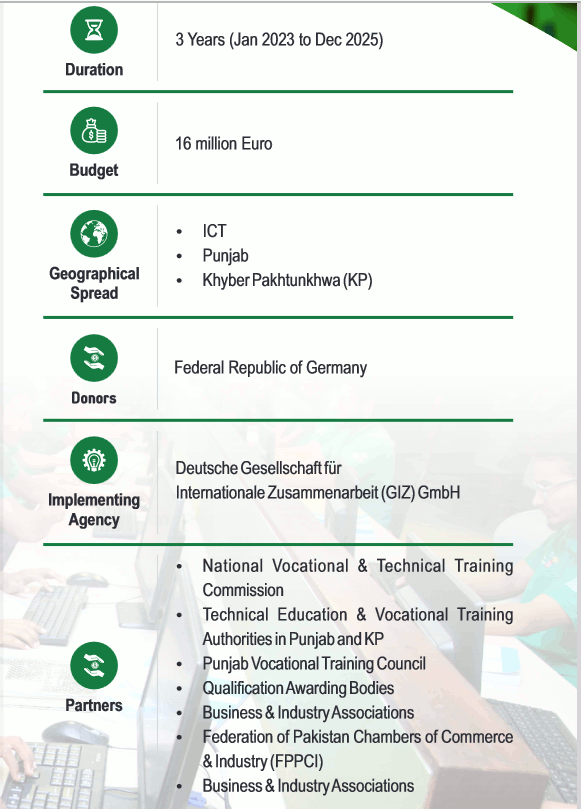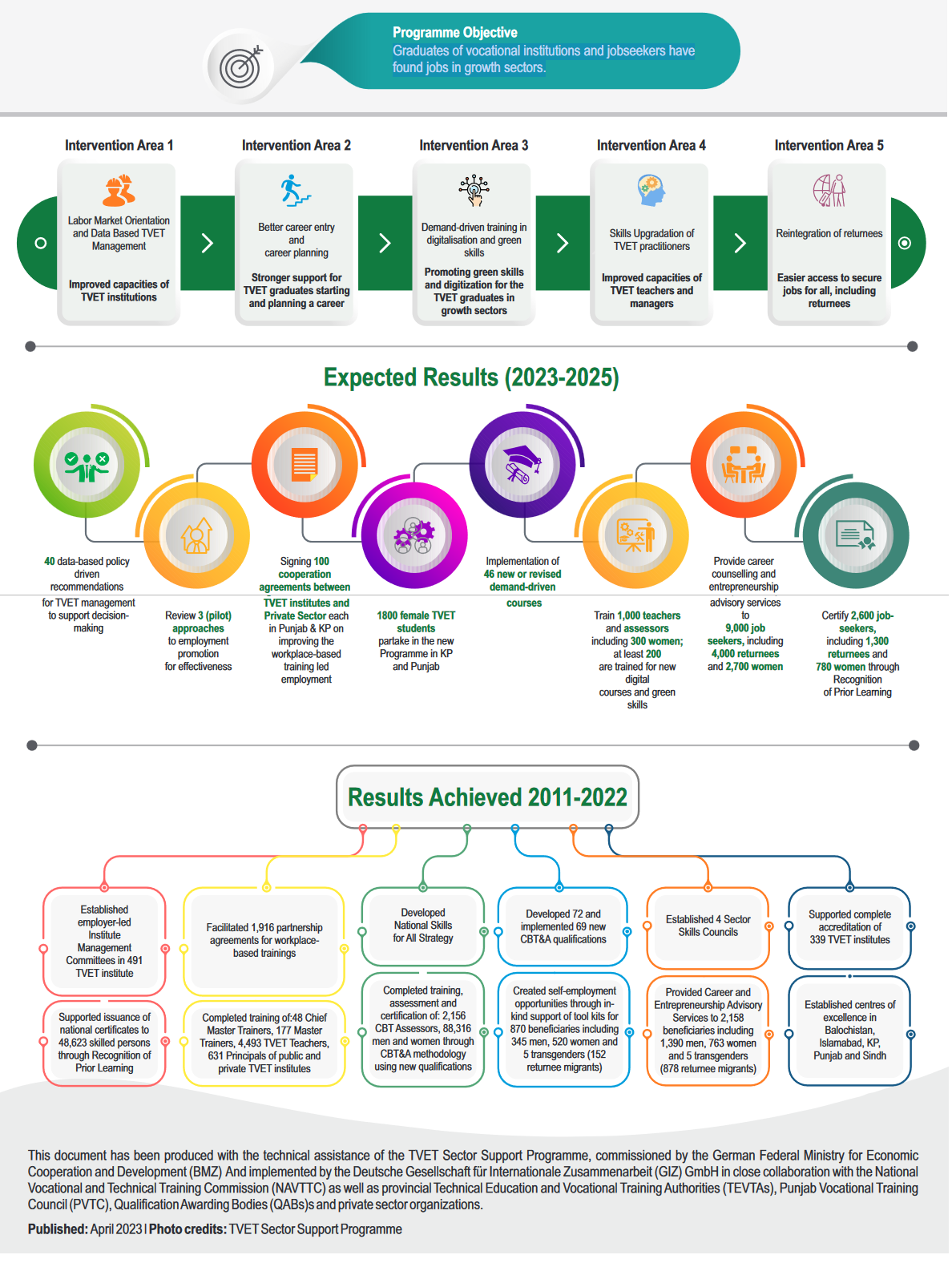Introduction
In Pakistan, around two million young people enter the job market every year, many of them without any formal training. In both quantitative and qualitative terms, the state of TVET system is unable to offer formal vocational training that prepares them adequately for jobs in the private sector or for self-employment. Only a handful of students who complete a state-run TVET programme subsequently find a job that matches their training profile.
Annually, 1.8 million young people enter the job market, but as of 2018, there are only 433,237 places available in the formal Technical and Vocational Education and Training (TVET) through 3,740 institutes across Pakistan. Apart from this mismatch between demand and supply, even the quality and relevance of the training delivered are not according to the demands of the job market.
To improve access, quality, equity, and relevance of TVET, the Government of Pakistan embarked upon a comprehensive reform in 2011 with the support of the European Union and the governments of Germany, the Netherlands, and Norway.
The first phase of the reform, which is based on the National Skills Strategy (NSS), ended in December 2016. During this period several milestones have been achieved such as the national TVET Policy, the National Vocational Qualifications Framework (NVQF), and the introduction of Competency Based Training & Assessment (CBT&A) etc.

The second phase of the TVET Sector Support Programme, which concluded in 2022 with the overall objective to improve governance and the private sector for Pakistani youth including returning migrants’ participation in the TVET sector to increase quality skill development that meets the demand of the labour market.
The third phase of the Programme with the assistance of the Federal Republic of Germany is based on the Skills for All Strategy with the objective that “Graduates of vocational institutions and jobseekers have found jobs in growth sectors”. The Third phase is focused on green skills, digitization, and gender as core themes.
The Programme in the current phase aims to create employment opportunities ensuring that at least, 3,600 of 6,000 beneficiaries find employment, including at least 1,080 women and 2,880 young people. Beside this 1,000 of 2,000 graduates of skills-based short-term courses will be employed/self-employed, including at least 300 women. Furthermore, 70% of the women graduates who are employed/self-employed will have used services by Career Counselling and Job Placement Career Counseling and Job Placement (CCJP) centers.

 Pakistan TVET REFORM Support Programme Technical and Vocational Education and Training (TVET) Reform support Programme
Pakistan TVET REFORM Support Programme Technical and Vocational Education and Training (TVET) Reform support Programme





